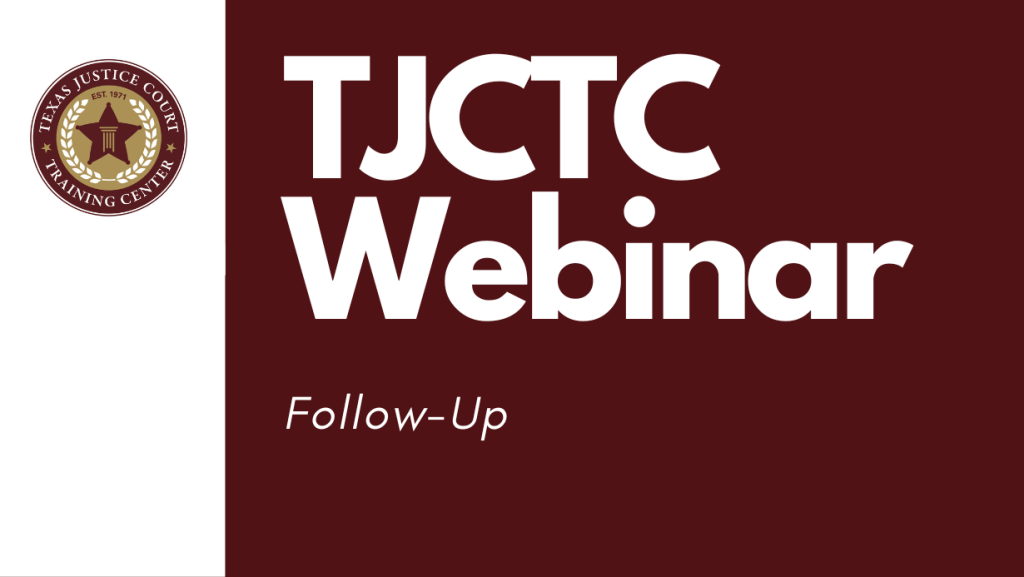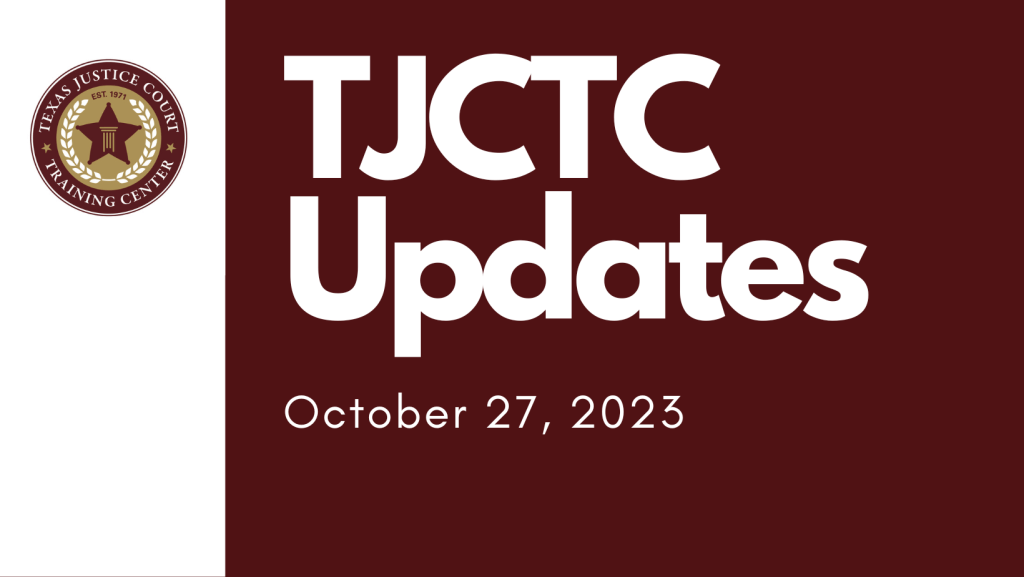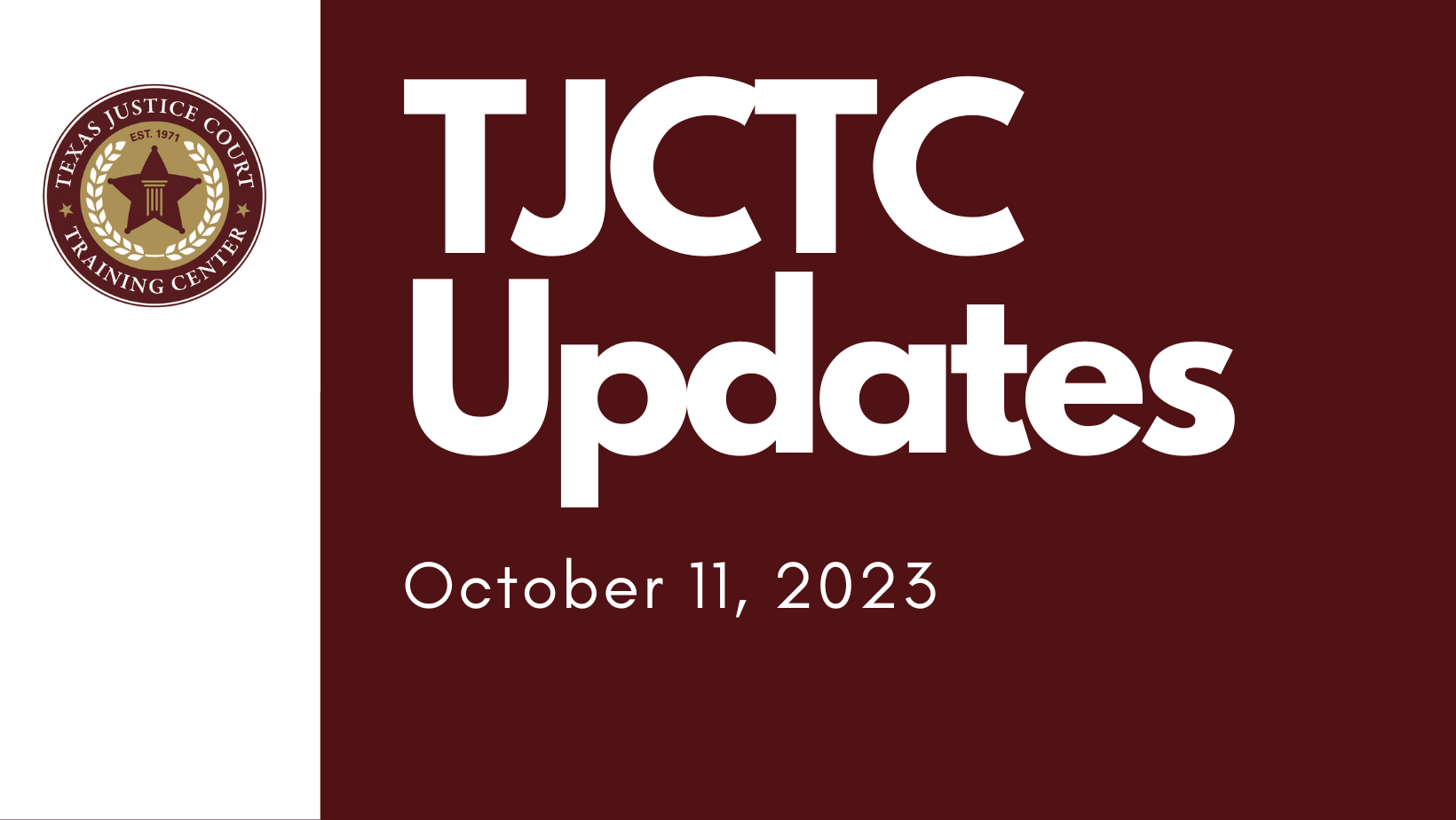Good Afternoon Judges, Constables, & Court Staff,
Happy New Year! We hope you got some needed rest, relaxation, and family time over the winter holidays. We are back to work here at TJCTC and wanted to share a few updates and resources with you!. Make sure you read all the way to the bottom of this email (especially if you are confused or have questions about our new “database” or registration system and student profiles).
CJIS Password Expiration
Many courts had their CJIS passwords expire over the holidays, and the CJIS office wanted us to let you know who to contact for help. Emails are below.
Online CJIS/EDR password resets and re-activation: GRP_CJIS_SITE@dps.texas.gov
Corrections need to be emailed to: corrections.cjisjjis@dps.texas.gov
You can also contact your CJIS Field Auditor if you have additional questions. Their contact information can be found on their website on the CJIS Field Auditor Region List.
Upcoming Webinars
State of the State: Texas Demographic Trends and Characteristics, hosted by TJCTC
January 25th from 10:00 – 11:30 am CST
Speaker: Lloyd B. Potter
Do you want to know who is in your county and state? This webinar will provide information on the Texas population, including rural vs urban trends, migration information, and birth rates. It will also cover how Texas compares to other states and projected changes for Texas’ future.
Registration: https://txstate.zoom.us/webinar/register/WN_rx-OdoszTm6-PJn_L81QGQ
Tow Hearings in Justice Court, hosted by the Justice Court Section of the Texas State Bar
January 26th from Noon – 1:00 pm CST
Speaker: Jonathan Bruce
This is a one hour presentation concerning tow hearings in justice court.
Registration: https://us06web.zoom.us/meeting/register/tZMlde2qpz4pHNASBKNjWbzbyAf2ijdBOUwM#/registration
*New* Recording for Credit
Texas State Law Library Online Resources, 1 Hour Civil
Do you know about the resources available on the Texas State Law Library (TSLL) Website? Any Texan can get a free library card and access to these legal resources, so not only can judges, constables, and court staff use these resources for legal research, but the public can as well. Watch this one-hour prerecorded webinar for an overview from TSLL staff.
You can find the recording for credit on the TJCTC Recordings for Credit Page under Court and Office Management Webinars. The TSLL also has additional self-help videos on their YouTube Page.
Database and Website Help
Are you confused? Don’t worry, some of us at TJCTC are too! Here are a few FAQs and a video to hopefully help you out.
FAQs:
- Did TJCTC get a new website? No. The website is still www.tjctc.org.
- Did the Deskbooks and forms move? No. You can still find them under the Legal Resources tab at www.tjctc.org.
- How do I get to the legal board? You can access the legal board by logging into your new database account (with your email address, just like when you registered for a seminar this year). You can also use the old links on the legal board page (under the Legal Resources tab) that have been redirected to the new location.
Click the links below to watch videos about our website resources and new database.
As always, we are looking forward to seeing you at a program in the upcoming months. We have a very busy Spring full of education events for you lined up from TJCTC!
Thea & the TJCTC Team







